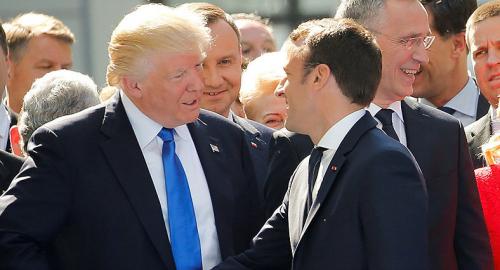The Centre, the Periphery and Political Authority
The conflict that matters is not the dispute between the Democratic Party and the Republican Party, but between both of these apparatus that inhabit the Centre, versus the networks of the Tea Party.
- Opinión

In The Revolt of the Public and the Crisis of Authority in the New Millennium, Martin Gurri, describes the erosion that political authority suffers due to technological progress, the massive dissemination of digital artefacts and a phenomenal supply of information. Gurri notes the incapacity of the hierarchies of industrial society to preserve their status in a context in which information is abundant, circulates rapidly and, in principal, among an unlimited number of people. Such an offer tremendously complicates secrecy, an essential component of the sacred.
Gurri exposes a conflict between the Centre and the Periphery (he refers to the “Border”[1]). The Centre is made up of hierarchical organizations and their rigid procedures, it is a slow collective, hardly able to confront new challenges, that plans actions designed to boycott emergencies that might alter the state of affairs. The Periphery, on the contrary, is the geography in which sects and networks flourish: “voluntary associations of equals”. Their reason for being is opposition to the Centre, but they are not interested in government, so they do not undertake training to exercise it. Putting together a government implies defining hierarchies, distinguishing and rationalizing sectors, restoring inequalities. “The strategy of the Centre is to make a programme” according to the peripheral actors of Gurri. The peripheral sects seek to model behaviour on the terms transmitted by “the good society”.
Gurri calls for deciphering the underground conflicts that arise between sects and hierarchical organizations, to decipher the discontinuities. The conflict that matters is not the dispute between the Democratic Party and the Republican Party, but between both of these apparatus that inhabit the Centre, versus the networks of the Tea Party. The book is from 2014, today we could postulate as a relevant dispute the one which has emerged between the stable bodies of conservatives and labourites versus the movement dynamic of Jeremy Corbyn.
One might also speculate that the challenges disrespectfully proposed by Trump to the leaders of NATO and the signatories of the Paris Agreement involve a mischievous manoeuver by the former presenter of reality shows to increase his authority by voiding important foreign and global hierarchies. This pleases a good part of the audience from the Periphery. His economic conservatism, nevertheless, does not ensure him the approval of the multinational corporate establishment, due to the unpredictable character of his actions. Donald, at any event, is a freestanding figure of the Centre.
The central establishment prefers to put its stakes on Emmanuel Macron. His esthetics, false de-ideologization and multicultural rhetoric make up a much finer electoral product. As an added value, he is French. The record abstention of 51% of the electorate in the first round of the French legislative elections indicates the limits of the experiment, that are by no means unsurmountable.
14/06/2017
(Translated for ALAI by Jordan Bishop)
[1] TN: The author explains that he has preferred, in Spanish, the term Periferia, rather than the more literal translation “límite” or “frontera”, so we have kept that term in the English version of this article.
Del mismo autor
- Últimas noticias sobre la desigualdad 19/03/2018
- ¿La declinación de un imperio? 21/12/2017
- Smartphones, depresión y muerte 27/11/2017
- La reconfiguración securitaria de Asia (y el resto) 22/11/2017
- Las pantallas de Dorian Grey 06/11/2017
- Nacionalismo pequeño estatal 17/10/2017
- Eje del mal suramericano 28/09/2017
- Intervenciones de la voluntad electoral 26/09/2017
- La ingeniería de un genocidio 21/09/2017
- Geopolítica civilizacional otomana en Eurasia 19/09/2017
